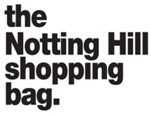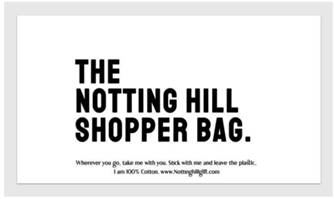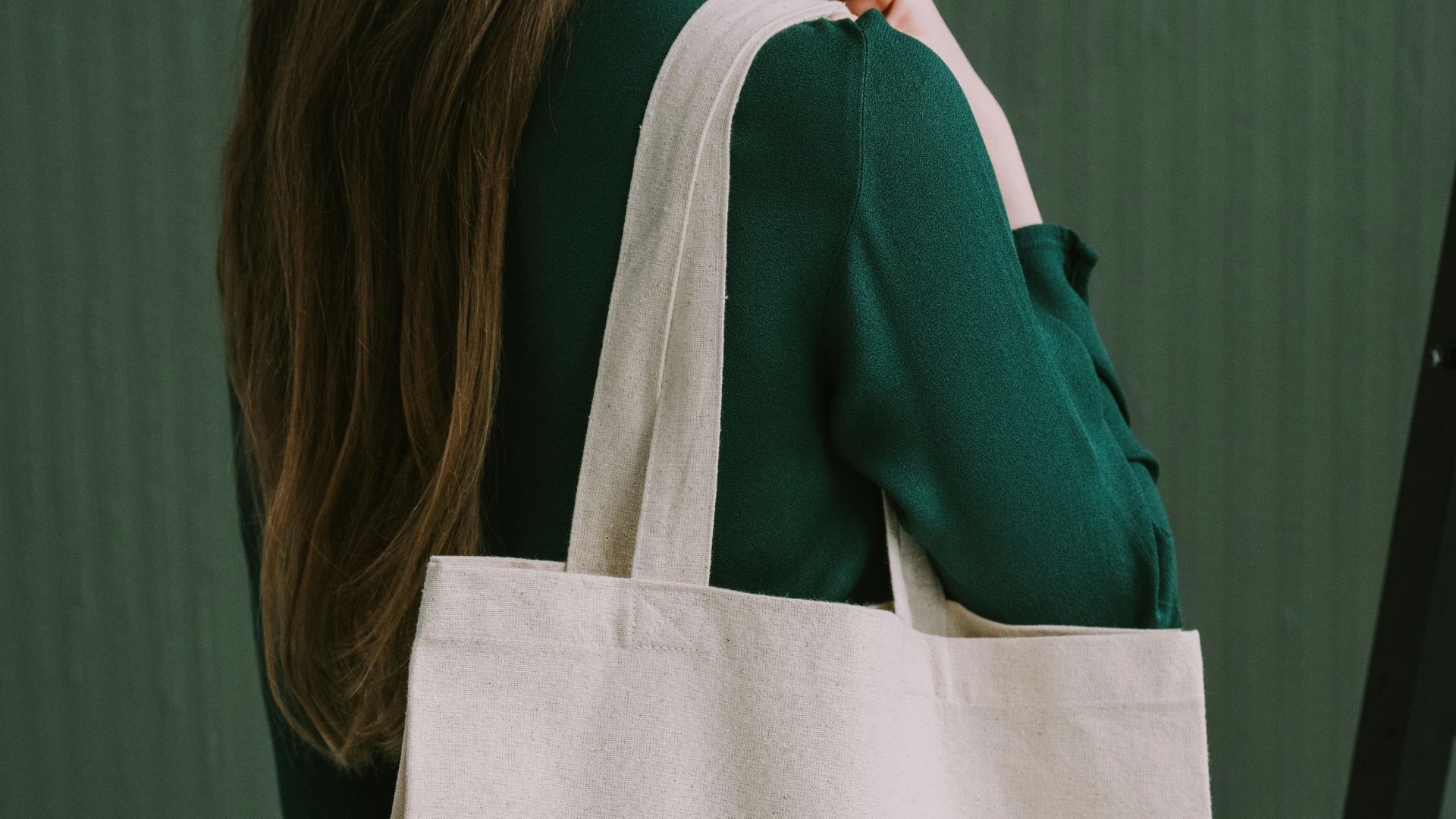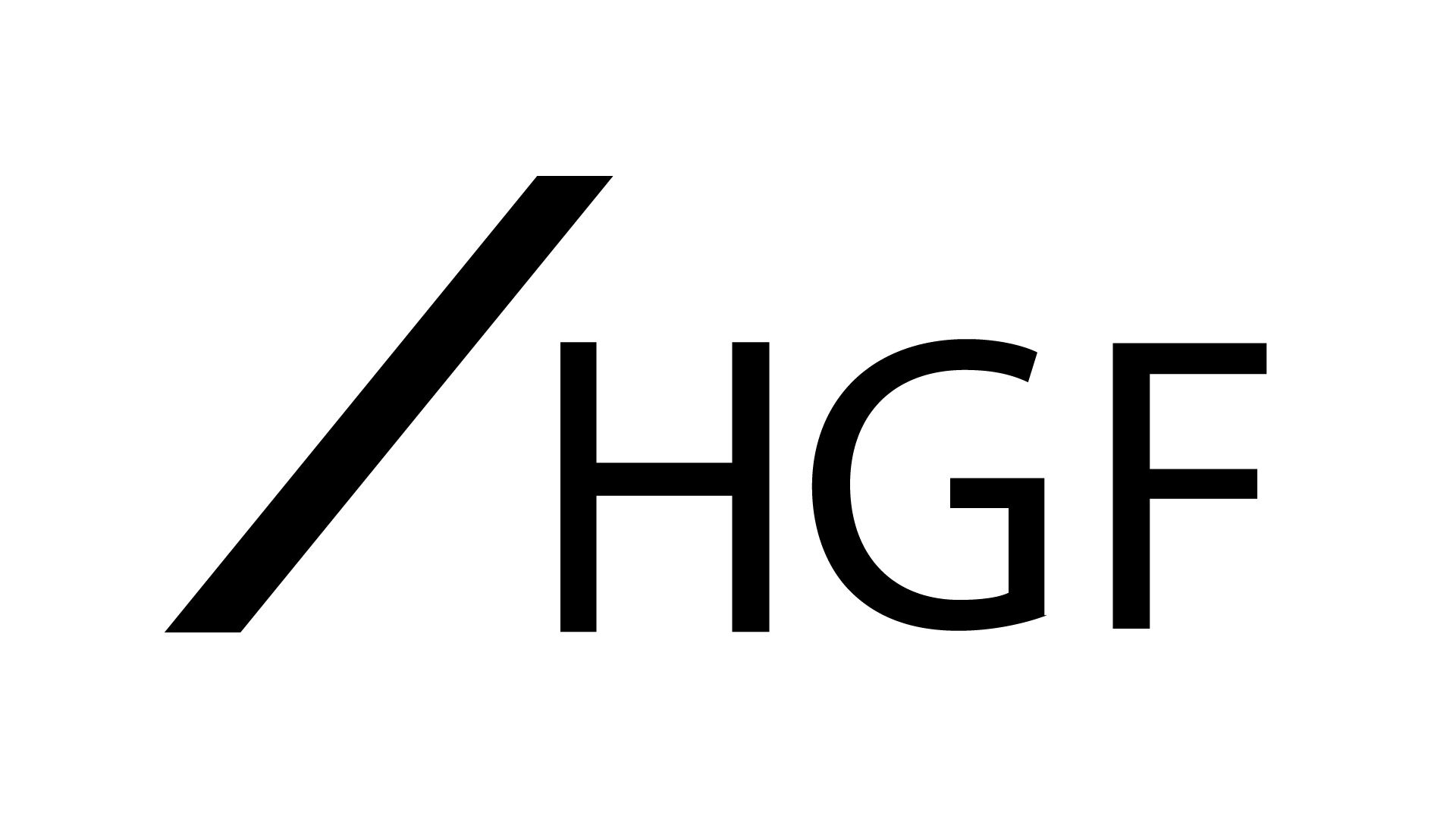News
Avoiding Legal Pitfalls: The Notting Hill Bag Company’s Costly Mistake
September 2025
Summary
The Judge held the Trade Mark (shown below) was invalidly renewed as it expired before its renewal, and so the Notting Hill Bag Company (NHBCL) did not have standing to bring the trade mark claims. The outcome of the trade mark claims hinged on the fact that the Trade Mark was renewed invalidly when it was bona vacantia (meaning ownerless property which by law passes to the Government Legal Department, referred to as “the Crown”).
NHBCL failed to establish it was the proprietor of any goodwill associated with the brand name “THE NOTTING HILL SHOPPING BAG” and/or the Logo, and so the passing off claim also failed. Additionally, the IPEC found the Logo attracted limited copyright protection as an artistic work, however, the Defendants’ bags did not infringe the copyright of the first Claimant, Natasha Courtenay-Smith (NCS).
Background
NCS created the Logo (shown below) in or around 2008/2009 and sold tote bags featuring the Logo wholesale to traders on Portobello Road in Notting Hill, London.

(the Trade Mark, the Logo)
NCS incorporated The Notting Hill Shopping Bag Company Limited on 6 April 2010 (the “Company”) as a trading entity for her business selling tote bags featuring the Logo. The Company applied for the Trade Mark on 2 May 2013, and the Trade Mark was registered on 11 October 2013. The Company was voluntarily struck off and dissolved by NCS on 10 April 2018. The IP rights, including the Trade Mark, passed bona vacantia to the Crown.
In January 2023, NCS applied to restore the Company, allegedly to assign the Trade Mark to herself. Although the Trade Mark belonged to the Crown, on 22 March 2023, the owner of one of the bag’s wholesalers, Mr Canbolat An (referred to as “CA” in the judgment), applied to renew the Trade Mark (without the Crown’s consent). The Company was restored to the register on 12 October 2023 but by this time the Trade Mark had expired.
The Notting Hill Shopping Bag Company Limited, the First Defendant, (NHSBCL) was incorporated by the second Defendant, Mr Nangialai Takanai (referred to as “NT” in the judgment), on 9 January 2023. NHSBCL has a near identical name to the Company. The Notting Hill Shopper Bag. Ltd, the third Defendant, (“NHSBL”) was incorporated by the fourth Defendant, Mr Ehsanullah Takanai (referred to as “ET” in the judgment), on 30 November 2022.
NHSBCL and NHSBL (and NT and ET personally before their incorporation) sold products, including bags, in Notting Hill for which they sought to register trade marks in January 2023. NT and ET argued they came up with their ideas for the designs for the Defendants’ bags in about 2016/2017 and were selling their bags on the Portobello Road from around 2017 (before having ever seen the Claimants’ bags). The Defendants’ evidence was inconsistent and the Court concluded that the Defendants started selling their bags in about November 2022 after having seen the Claimants’ bags.
NHSBCL filed a UK trade mark application number on 11 January 2023 to register a trade mark for the following sign for goods in class 16 and 18, which included reusable shopping bags:

Additionally, NHSBL filed a UK trade mark application for the below sign for goods in class 16 and 18, which included reusable shopping bags, on 17 January 2023. Both trade mark applications were opposed by NCS.

NCS filed a trade mark application on 11 January 2023 for the mark THE NOTTING HILL SHOPPING BAG which NHSBL opposed. All three trade mark applications were stayed pending judgment in this case.
Trade mark infringement claims
The IPEC found all of the trade mark infringement claims failed as the Trade Mark had passed bona vacantia to the Crown upon the restored company’s voluntary dissolution on 10 April 2018. Generally, the Crown will disclaim trade marks at the point of renewal rather than incur the costs of renewing assets (as is the case here). Due to the Trade Mark’s expiry, when the Company was restored, the trade mark had lapsed. Therefore, the Claimants did not have standing to bring trade mark claims.
The Court did not deal with whether the Claimants would have been successful in a claim to infringement under s10(2) of the Trade Marks Act 1994.
Passing off claim
The Claimant also sought to establish a passing off claim. The Court acknowledged that the threshold for establishing goodwill in a passing off claim is not high, but nonetheless it was unable to find NHBCL had established goodwill and reputation in the Logo. The Claimant could not show that its invoices related to sales of bags bearing the Logo, including via its wholesalers. NHBCL failed to substantiate the claims made in evidence regarding its turnover and marketing spend with any accounting or financial information. Furthermore, NHBCL’s digital and social media evidence was weak. Therefore, the passing off claim also failed.
Copyright infringement claim
The Court held that the Logo qualified for artistic copyright pursuant to the Infopaq test for copyright subsistence, as an original work of the author’s own intellectual creation. However, the degree of creativity was low. Therefore, the Logo was only entitled to limited protection such that only a close copy of the Logo would infringe.
The Court found the visual differences between the Claimants’ Logo and the Defendants’ signs “striking”, noting three of the four elements relied on by NCS (the lower case t, the full stop and the font) were not copied in the Notting Hill word sign which also used “Shopper” instead of “shopping”. On this basis, the Court found that the Defendants had not taken a substantial part of the Logo and there was no copyright infringement.
Conclusion
In this case, the Defendants, trading on Portobello Road a few hundred metres away from where the Claimants’ bags were being sold, registered a similar trade mark to the Claimants’ Logo, and established limited companies with similar names to the second Claimant. On the facts, and given the similarities of the signs at issue, the outcome in this case for the Claimant does appear harsh.
This judgment serves as a stark warning for brand owners to take legal advice to ensure that the beneficial and legal title to their intellectual property is held correctly.
This article was prepared by Partner & Trade Mark Attorney Claire Jones.
































